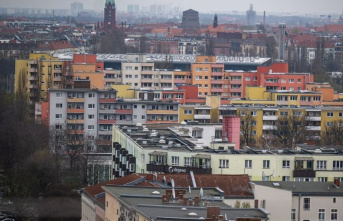28 percent of Madrid residents who do not have children believe that they will not be able to have them in the next three years despite being willing to do so, while 40 percent of those who already have children believe that they will not be able to have more children in a Next future. These are data that emerge from the 'Study on the behavior, attitudes and family and reproductive aspirations of the population aged 18 to 45 in the city of Madrid' presented yesterday by the delegate for Families, Equality and Social Welfare, José Aniorte.
The report, drawn up by the General Directorate for Innovation and Social Strategy based on a survey of 1,508 households, shows that at 30 years of age, only one in three Madrilenians has children, while at 40 it rises to three of every five.
"The people of Madrid have children late and, above all, fewer children than they would like," said Aniorte. Specifically, the survey highlights that these data are due to several reasons "that end up making people see the possibility of having children as something very difficult," explained the delegate.
In the first place, the document details that one in three women and one in four men claim to have had problems related to compatibility with their working life, while 87 percent of those surveyed ask for more birth support policies and 63 percent that they are more focused on conciliation.
During the presentation, the general director of Innovation and Social Strategy, Héctor Cebolla, stressed that for 74 percent of Madrid citizens, low fertility is a "quite or very serious" problem and one of the reasons is the delay of the emancipation of young people, given that at the age of 30 there are 20 percent of people in Madrid who still live with their parents.
Given this evidence, Aniorte pointed out that "there is no better social policy than supporting families", which means "listening to them" to act through policies "aligned with their requests" such as the Children's Scholarship to support schooling in children's schools in 0-3 years, which already has 1,600 beneficiary families, or the forthcoming addition of three new centers to the City Council Nursery School Network.
Likewise, the delegate of the social area recalled that the city council has the Sercaf program (Conciliation and Support Service for Families with Minors), aimed at supporting the conciliation and upbringing of families in vulnerable situations and that it has extended an agreement with Cruz Red to continue promoting the opening of children's day centers. “We are doing a lot, but we must continue working so that Madrid is the best city to form and have a family”, stressed the delegate.
2












